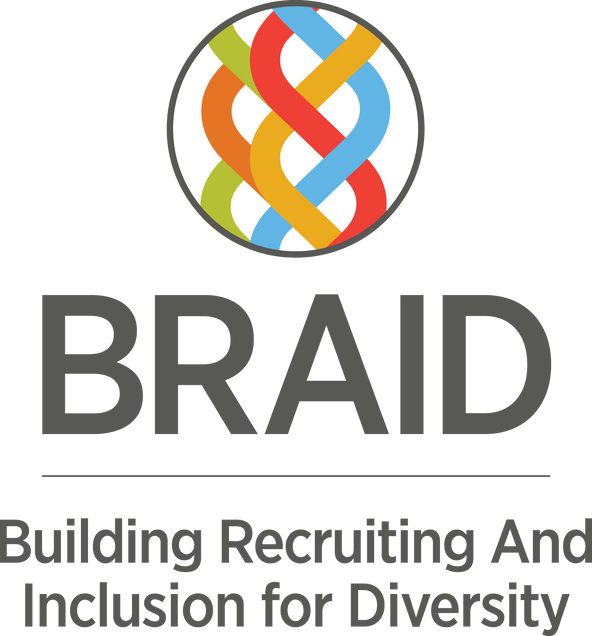Boston University Chosen as 2019 BRAID Affiliate School
As part of our ongoing commitment to promoting diversity and inclusion in Computer Science, the Boston University Department of Computer Science is excited to announce that we have been accepted as a 2019 BRAID Affiliate School. The BRAID (Building, Recruiting And Inclusion for Diversity) Initiative “aims to increase diversity among undergraduate majors in computer science (CS) departments, with particular attention to women and racial/ethnic minorities.”

During our time as a BRAID Affiliate, we will work to implement a combination of four BRAID commitments that seek to increase participation of underrepresented minority students in CS-related activities. These commitments include:
- Modifying introductory CS courses to make them more appealing and less intimidating to underrepresented students.
- Leading outreach programs for high school teachers and students to build a diverse pipeline of students.
- Building confidence and community among underrepresented students.
- Developing and/or promoting joint majors in areas like CS and biology that are attractive to underrepresented students.
Department Chair Abraham Matta will oversee the implementation of these commitments.
“I believe our broadening participation in computing efforts cover all four tenets of BRAID,” said Matta. “My goals are continuing to increase numbers of women in CS, increasing numbers of underrepresented minorities, building a stronger community for students, and developing more mentoring opportunities and recruitment strategies.”
Over the past five years, the percentage of underrepresented minorities in our department has risen. Today, 30% of CS majors identify as female, up from 25% five years ago. The CS minor has an even higher representation with 50% of CS minors identifying as female.
“The [Department of Computer Science] at BU has made great strides over the past six years in increasing the number of women faculty, hiring five female faculty out of our last 11 faculty hires,” said Matta. “We have also revised our CS-1 course, adopting the Python-based version developed by Harvey Mudd College. This has resulted in attracting many more women into CS.”
Increases in diversity are notable among those who reported their race/ethnicity over the past five years as well. The percentage of “white” students dropped from about 53% in 2014 to 38% in 2018. Meanwhile, “African American/Black” students increased from 3% to 8%, “Hispanic/Latino” students increased from 11% to 14%, and “Asian” students increased from 31% to 39%.
As a BRAID Affiliate, we are also fortunate to be able to participate in the 2019 BRAID Summit this summer. At the BRAID Summit, we have the opportunity to engage with department chairs from BRAID schools, BRAID Beacon schools, fellow BRAID affiliates, members of the BRAID Research Team from UCLA, nonprofit partners, and BRAID funders.
“Being a BRAID Affiliate is a recognition both of the initial efforts we’ve been undertaking toward increasing diversity and broadening participation in computing and of the promise of doing more,” said Matta. “We are grateful for the opportunity to work with the BRAID program on projects that are aligned to all four BRAID commitments related to introductory CS courses, outreach, building community, and joint majors.”